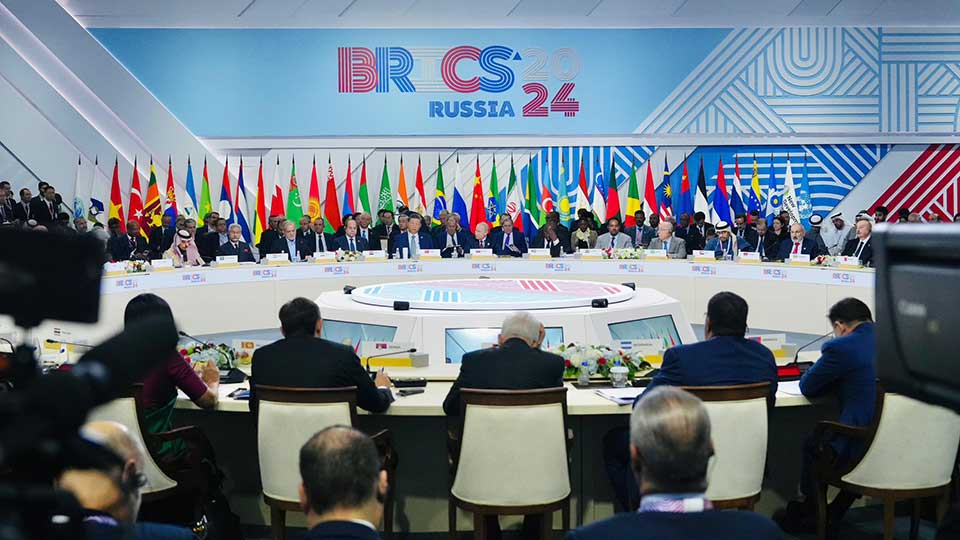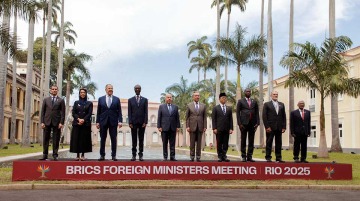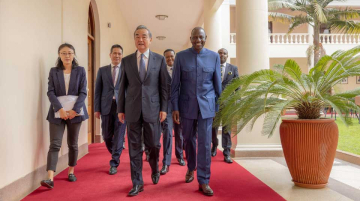
Indonesia’s recent decision to pursue full membership in BRICS—a coalition of major emerging economies including Brazil, Russia, India, China, and South Africa—has stirred significant discussion amid an evolving geopolitical landscape. During the recent BRICS Plus Summit in Kazan earlier this month, Foreign Minister Sugiono officially expressed Indonesia’s interest in joining the bloc, positioning it as a potential vehicle for promoting the interests of the “Global South.” However, he emphasized that Indonesia would not take sides, maintaining engagement with other forums and advanced economies.
This initiative represents Prabowo’s first major foreign policy maneuver and aligns with his vision of a “good neighbor policy.” This philosophy emphasizes building friendly relationships with all nations while opposing oppression—a principle deeply rooted in Indonesia’s historical context as a nation that has experienced colonialism and sought to uphold sovereignty and equality in international relations. Sugiono highlighted that the goals of BRICS resonate with the new administration’s priorities, including food and energy security, poverty alleviation, and human capital development.

The decision to seek BRICS membership follows a previous choice by former President Joko Widodo, who opted not to pursue this path after last year’s summit in Johannesburg. By changing course, Prabowo aims to establish Indonesia as a significant player on the global stage, especially as other Southeast Asian nations—such as Malaysia, Thailand, and Vietnam—have also recently sought closer ties with BRICS. This collective movement among Southeast Asian nations indicates a broader regional trend toward engaging with alternative global structures in response to shifting power dynamics.
However, the potential advantages of joining BRICS for Indonesia remain ambiguous. Many observers question the coherence and viability of the bloc as an effective platform for substantial economic collaboration. Although BRICS promotes itself as a counterbalance to Western dominance, internal dynamics suggest that China holds substantial sway within the group. A significant portion of trade among BRICS nations is dependent on China, which raises concerns about the tangible benefits for Indonesia. This reliance on a single dominant member could limit Indonesia’s ability to leverage its position effectively within the bloc.
Moreover, the economic realities of existing BRICS members complicate the situation. Countries like Russia and Brazil are facing considerable economic challenges, and even China is grappling with issues related to domestic demand and growth. Aligning with a bloc characterized by such instability may not yield the economic benefits Indonesia is seeking. This uncertainty is compounded by the fact that many emerging economies within BRICS struggle with their development agendas, making cohesive collaboration difficult.
Yohanes Sulaiman, an Indonesian IR scholar, highlights an intriguing point: Prabowo’s decision to send Foreign Minister Sugiono to the summit instead of attending personally speaks volumes about his administration’s priorities. This decision contrasts other nations that sent their heads of state, signaling that while Indonesia is exploring new partnerships, it remains committed to its relationships with Western powers. This absence suggests that, despite Indonesia’s interest in BRICS, its overall foreign policy will remain unchanged, emphasizing a willingness to collaborate with the West while not fully aligning with any single bloc.
As Indonesia moves forward with its bid for BRICS membership, it must weigh the potential implications carefully. While there may be opportunities for economic collaboration, alignment risks and the need to maintain its reputation as a normative middle power should guide its decisions.
The motivations behind Indonesia’s pursuit of BRICS membership seem to reflect a desire to strengthen its negotiating position with Western nations. By signaling its interest in joining the bloc, Indonesia aims to assert its independence and remind global powers not to take its cooperative stance for granted. Sugiono’s emphasis on aligning with BRICS priorities underscores Indonesia’s strategy of navigating multiple geopolitical avenues without fully committing to any single camp.
As time progresses, Indonesia’s foreign policy under Prabowo is set to be more dynamic and assertive than that of his predecessor. Nevertheless, it is likely to continue adopting a stance of strategic ambiguity, striving to balance relationships with both Eastern and Western powers while reinforcing its identity as a leader of the Global South. This dual approach enables Indonesia to engage in meaningful dialogue with diverse partners, advocating for the needs and interests of developing nations.
As Indonesia moves forward with its bid for BRICS membership, it must weigh the potential implications carefully. While there may be opportunities for economic collaboration, alignment risks and the need to maintain its reputation as a normative middle power should guide its decisions. By remaining committed to its historical values of sovereignty and equality, Indonesia can play a meaningful role in fostering a more equitable global order while enhancing its international standing.
Ultimately, it must navigate the complex dynamics of asserting its independence while ensuring its foreign policy remains effective and inclusive. By focusing on its national interests and the broader aspirations of the Global South, Indonesia can position itself as a vital player in the changing geopolitical landscape. The path forward will require astute diplomacy and a clear vision to harmonize its domestic goals with its international aspirations, ultimately contributing to a more balanced and just world order.
Muhammad Zulfikar Rakhmat is the Director of the China-Indonesia Desk at the Center of Economic and Law Studies (CELIOS).








